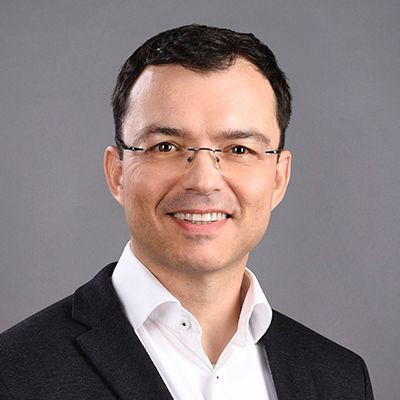Robert Desax
Urs Christ
Current tax problems in the event of inheritance
Case studies, slides and detailed solution notes from the workshop held by Robert Desax and Urs Christ on October 28, 2025 on the occasion of the ISIS seminar "Gratuitous asset transfers in tax law".
Case 1: Innovations in intercantonal tax differentiation in inheritance cases following the decision 9C_102/2023 of November 2, 2023 of the Swiss Federal Supreme Court
1.1 Facts of the case
Susanne Klein, resident in the town of Schaffhausen (SH), died on September 7, 2022. She left her godchild Leo Gross as her sole heir. No other persons were beneficiaries. Her estate is made up as follows:
Assets
Securities and credit balances CHF 1,000,000
Detached house in Fehraltorf (ZH) CHF 2'000'000
Liabilities
Lump-sum death costs CHF 12,000
Current liabilities CHF 88,000
The value of the single-family home is the market value as at the date of death. The corresponding wealth tax value is CHF 1,000,000. The relevant repartition factor for the Canton of Zurich is 115%.
1.2 Questions
- How much inheritance tax does Leo Gross have to pay in the canton of Zurich under current practice?
- How much inheritance tax will Leo Gross have to pay in the canton of Zurich if the above decision is implemented?
Case 2: Premature and gratuitous sale of a subsequent or prior inheritance by the prior heir to the subsequent heir within the scope of application of the Inheritance and Gift Tax Act of the Canton of Zurich
2.1 The facts of the case
Peter Keller died on September 1, 2021, having been resident in Uster. He left his wife Petra Keller as his heir. In his will dated January 1, 2015, he bequeathed his assets to his wife as his primary heir. After her death, he appointed his nephew Sven Becker as subsequent heir to the remainder. He formulated this as follows in his will:
"My assets go to my wife Petra. After her death, I will appoint Sven Becker as my heir."
On August 7, 2024, Petra Keller left CHF 1,000,000 from her deceased spouse's prior inheritance to the subsequent heir Sven Becker.
2.2 Questions
- What are the inheritance and/or gift tax consequences of this transaction for Sven Becker in the Canton of Zurich?
- What would you have advised Peter Keller to do?
Case 3: Inheritance via a Liechtenstein foundation
3.1 Facts of the case
Mrs. A was widowed and died in 2020 with her last place of residence in the canton of Zurich. In her will, she appointed Foundation B in the Principality as the legatee for the movable assets held at Bank C. She had already set up the foundation 20 years earlier. Mrs. A had named herself as the first and (during her lifetime) only beneficiary in the by-laws. She also secured a right of revocation and concluded a mandate agreement with the foundation board.
The secondary beneficiaries after her death were her three children. They knew nothing about the foundation and were not supposed to sit on the foundation board. The children's compulsory portions were not violated. Each of the children (or the respective descendants in the event of predecease) was to receive CHF 1 million from the foundation upon reaching the age of 35. The remaining amount was to be donated to Foundation X, which is tax-exempt in the Canton of Zurich due to its charitable status. The foundation was then to be dissolved. The children all live in the canton of Zurich.
3.2 Questions
- How is the foundation to be treated for tax purposes during A's lifetime?
- What taxes are to be taken into account on the death of A?
- How are the distributions to the secondary beneficiary children to be treated?
- What should be considered if it turns out on A's death that the foundation held undeclared assets?
Case 4: Dissolution of an advance inheritance community
4.1 Facts of the case
A (widowed) lives in Vaduz (FL). His two children (daughter B and son C) live in the city of X in Switzerland. A owns a property in the city of X, which he acquired in 2010 for CHF 2 million.
In 2020, A makes an advance inheritance payment to his children. Offsetting their inheritance share, he transfers the property in X, which is now worth CHF 3 million, as well as cash assets of CHF 3 million. No value-enhancing expenditure has been made since 2010. The property is now jointly owned by B and C (simple partnership BC).
In 2024, B takes over the entire property and buys out C. The property is now worth CHF 3.6 million. They conclude a "division agreement" and have it notarized. B transfers CHF 1.8 million to her brother. In return, the simple partnership BC is dissolved and B becomes the sole owner.
4.2 Questions
- Is property gains tax due?
- What if A had only given his children the bare property in advance and C had therefore only transferred his share to his sister?








